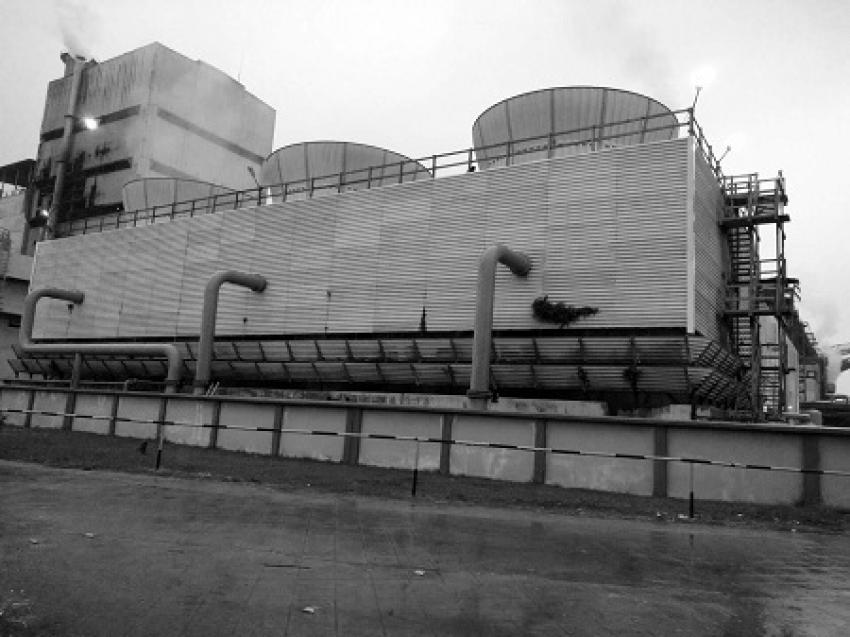
What’s flowing down the drain? Industrial facilities utilize water which inevitably requires an answer to its fate.
If you’ve ever seen a murky river or smelled something foul near an industrial zone, you’ve probably encountered the dark side of industrial wastewater. The water contamination problem throughout Malaysia stretches from being unpleasant to being costly and destructive and complex.
The growing concern around industrial wastewater treatment is no longer a niche environmental topic. The issue rises through discussions between factories and their fish industries and regulatory penalties.
This article explores how industrial wastewater affects ecosystems and industries across Malaysia—and why you should care. People who run businesses and those who make policies along with those who enjoy clear rivers and economic seafood prices should be concerned about this matter.
The Silent Polluter: What is Industrial Wastewater?
Industrial wastewater is the used water that comes out of manufacturing processes. It’s not your typical tap water.
It might contain chemicals, heavy metals, oils, dyes, or even microplastics. Different industries produce different kinds of waste, but the end result often flows to the same place—Malaysia’s rivers, lakes, and oceans.
Without proper industrial wastewater treatment, this toxic cocktail moves straight into natural ecosystems. It doesn’t just look bad or smell weird. It changes everything—from fish behavior to drinking water quality.
How Does Industrial Wastewater Impact Ecosystems?
Let’s talk about what happens when polluted water escapes into Malaysia’s rivers. Spoiler alert: it’s not good news.
1. Aquatic Life Gets Wrecked
Fish are sensitive. One whiff of mercury or zinc, and entire populations can drop.
- Oxygen levels in water plummet
- Algae blooms take over, killing fish
- Coral reefs get smothered
And no, these effects aren't reversible overnight. Recovery takes years—if it happens at all.
2. Biodiversity Starts to Collapse
Malaysia is a biodiversity hotspot. But industrial wastewater threatens that title.
Pollution from palm oil mills, rubber factories, and textile plants has made several rivers biologically dead. Meaning? No fish. No frogs. No bugs. Just silence.
If that doesn't raise an eyebrow, what will?
3. Contaminants Enter the Food Chain
Toxins from untreated industrial wastewater don’t just disappear.
They make their way into fish, which make their way onto our plates. This chain reaction has serious health consequences. Mercury in your sushi? That’s not exactly a gourmet experience.
How It Impacts Industries Themselves
Think pollution is just an environmental problem? Think again. Dirty water is also a costly business mistake.
1. Fines and Penalties Are Rising
Environmental regulations in Malaysia are tightening. Companies caught discharging untreated industrial wastewater face serious penalties.
We’re talking about massive fines, legal action, and even temporary shutdowns. That’s not just inconvenient—it’s reputation-ruining.
2. Water Treatment Costs Go Up
When factories dump waste into rivers, someone has to clean it. Guess who pays?
Water treatment plants spend more money to make that water drinkable again. These costs eventually fall on local councils, industries, or worse—consumers.
That means your monthly water bill isn’t just about your own usage.
3. Supply Chains Take a Hit
Industries relying on clean water—like agriculture, fisheries, and tourism—suffer from poor industrial wastewater treatment.
Fish farms close. Rice paddies fail. River tourism declines. A single polluted river can disrupt multiple sectors.
Still think it’s not your problem?
The Malaysian Context: Where Are We Now?
Malaysia isn’t new to this problem. In fact, the country has been battling it for decades.
According to the Department of Environment, hundreds of rivers are classified as “polluted” or “slightly polluted.” Industrial areas are often the primary culprits.
Areas like Sungai Juru in Penang and Sungai Langat in Selangor have become infamous. Despite efforts to improve industrial wastewater treatment, illegal dumping and poor enforcement remain serious obstacles.
And yes, there’s a rising number of “mystery foam” incidents. You don’t want to swim in that.
But Can It Be Fixed?
Of course, it can. The question is—will we bother?
Here’s the good news: Malaysian companies are slowly waking up to the need for proper industrial wastewater treatment.
Here’s the bad news: many still treat it like a checkbox exercise. Just enough to avoid getting caught.
A real solution needs more than compliance—it needs commitment.
What Can Be Done?
- Enforce environmental laws without exceptions
- Invest in better wastewater treatment systems
- Monitor discharge points with real-time sensors
- Support industries that meet higher environmental standards
Yes, it's expensive. But have you ever tried cleaning up a dead river? That costs more.
A Message to Industries: Think Long-Term
If you run a factory, ask yourself—what’s the cost of doing nothing?
Not just financially, but socially. Public trust matters. Clean rivers matter. Long-term business survival? That depends on clean inputs, reliable resources, and a stable reputation.
Cutting corners on industrial wastewater treatment today could mean bigger problems tomorrow. Maybe even a front-page scandal.
So why wait?
Malaysia’s Ecosystems Deserve Better
The country’s natural beauty isn’t just for postcards and Instagram.
It’s part of the economy, food system, and cultural identity. But rivers and lakes don’t clean themselves. Someone has to take responsibility.
And if industries step up, ecosystems have a fighting chance.
Think of it this way: cleaner water benefits everyone—businesses, fishermen, tourists, and future generations.
The Ripple Effect Goes Further Than You Think
The damage doesn’t stop at the water’s edge when industrial wastewater enters rivers. Polluted water from industrial discharge contaminates underground reservoirs and damages farmlands that use polluted water for irrigation and grazing animals.
The communities that exhaust their resources from these natural sources face the worst impact. Water contamination causes two major problems: children experience skin-related illnesses, professional fishers lose their work, and nearby local businesses encounter reduced profitability.
Investing in effective industrial wastewater treatment is not just an environmental action; it's a social and economic one. Industrial processes that implement effective cleaning methods benefit nature and protect human health and economic gains and institutions' well-being during the long term.
What About You?
Have you noticed a river that’s changed color? Do you remember when you could actually see fish in a stream nearby?
Let that be a reminder. Every polluted drop tells a story. But the ending isn’t written yet.
Whether you're a factory owner, a consumer, or just someone who hates dead rivers, you have a role.
And it starts with asking the right question: Where is all this dirty water going—and what are we going to do about it?
Conclusion
Industrial wastewater is more than an ugly byproduct. It’s a threat to Malaysia’s ecosystems and economy.
Without proper industrial wastewater treatment, rivers die, industries suffer, and costs spiral. The solution isn't simple—but it is necessary – and that is why, you need to call Techkem Water Technologies right away.
Clean water should not be a luxury. It should be the baseline. Let's not wait until the fish are gone to realize that.




